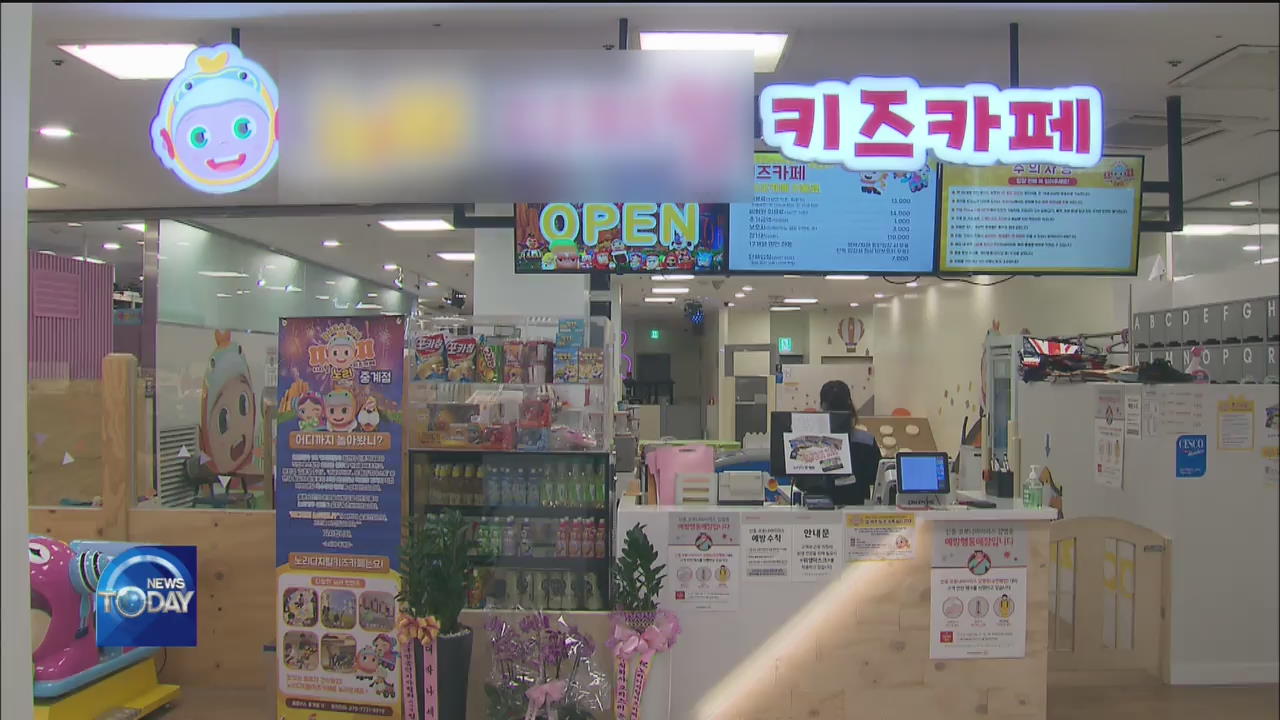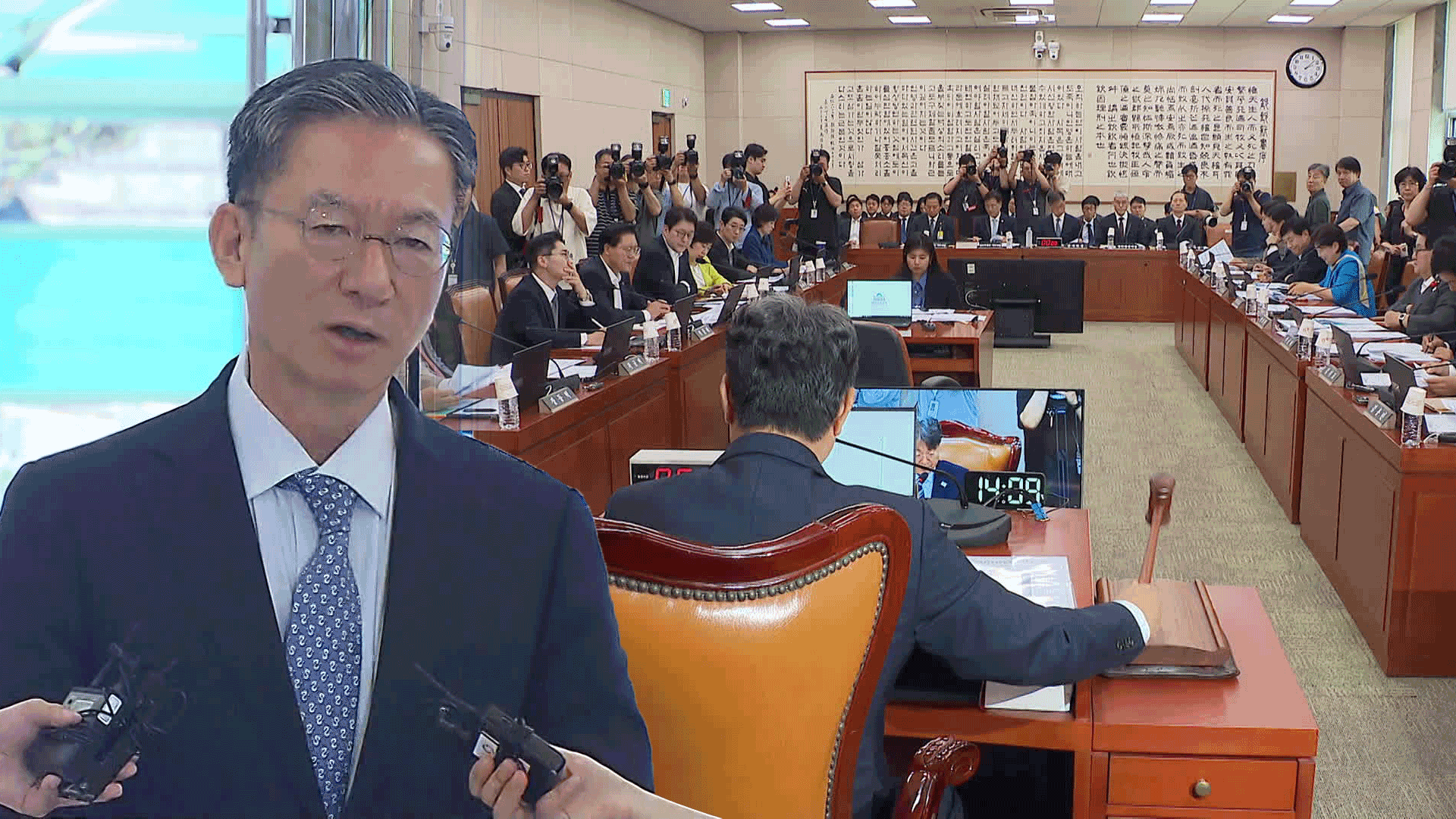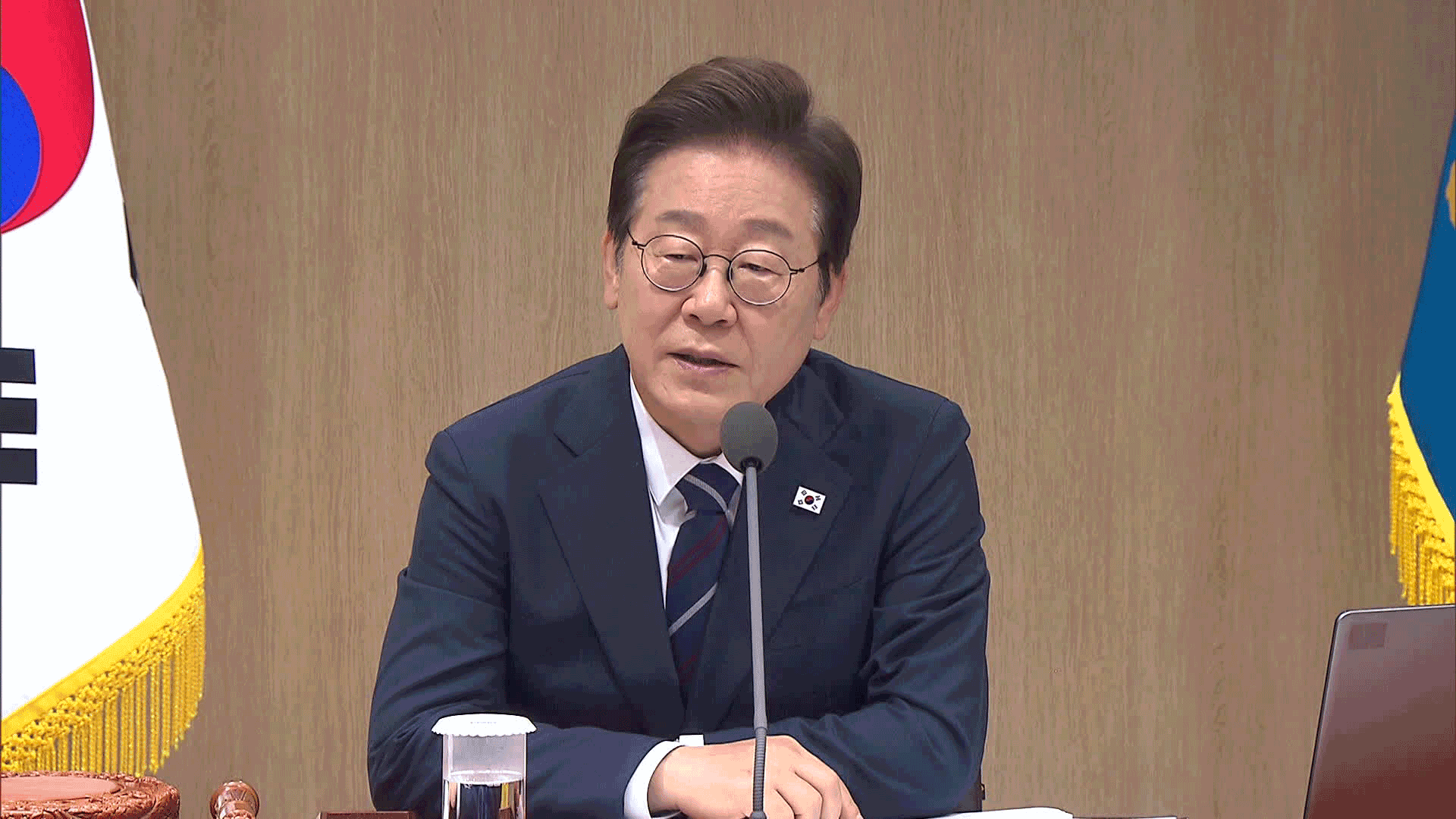FACILITIES EXPERIENCE FALL IN CUSTOMERS
입력 2020.02.04 (15:04)
수정 2020.02.04 (16:45)
읽어주기 기능은 크롬기반의
브라우저에서만 사용하실 수 있습니다.
[Anchor Lead]
Amid widespread concerns over the spread of coronavirus, commercial or entertainment facilities are experiencing a plunge in customers. Some businesses complain that the number of employees is greater than that of customers. The government says that it will devise measures to help the economy, officially admitting for the first time that the epidemic can have an impact on the economy.
[Pkg]
A kids' cafe, normally packed during this time of day. But right now, there's only a mother and her child at this establishment operated by three employees.
[Soundbite] LEE BO-RAN(SEOUL RESIDENT) : "We stayed home for some four days. We didn't go out, following reports about the increasing number of confirmed patients and the places they visited."
From disinfecting the whole place daily to installing thermographic cameras, all efforts to help ease customer concerns are not effective.
[Soundbite] CHAE HEE-JAE(KIDS' CAFE OWNER) : "We don't know yet how much damage we will suffer, how long we can hold out and where to turn for help."
Businesses visited by confirmed novel coronavirus patients, such as duty free stores and supermarkets, are suspending operations to help stop the spread of the disease. Last weekend, sales at department stores dropped some ten percent on-year. The service and distribution industries are the first to be hit hard by the outbreak. The government officially mentioned for the first time, the negative impact the virus can have on the economy.
[Soundbite] HONG NAM-KI(FINANCE MINISTER) : "If the outbreak is not contained early, it will cause economic downside pressure. We should address the situation with extra caution and awareness."
A prolonged outbreak means economic fallout from reduced consumption and tours to falling production and exports is inevitable. Back in 2015, the outbreak of Middle East respiratory syndrome or MERS, pulled down the nation's economic growth by point-3 percentage points, despite a cut in the benchmark interest rate and the appropriation of a huge supplementary budget. The government decided to set up taskforces to help boost domestic consumption and exports. Depending on how the situation changes, earmarking extra budget is an option that could be considered.
Amid widespread concerns over the spread of coronavirus, commercial or entertainment facilities are experiencing a plunge in customers. Some businesses complain that the number of employees is greater than that of customers. The government says that it will devise measures to help the economy, officially admitting for the first time that the epidemic can have an impact on the economy.
[Pkg]
A kids' cafe, normally packed during this time of day. But right now, there's only a mother and her child at this establishment operated by three employees.
[Soundbite] LEE BO-RAN(SEOUL RESIDENT) : "We stayed home for some four days. We didn't go out, following reports about the increasing number of confirmed patients and the places they visited."
From disinfecting the whole place daily to installing thermographic cameras, all efforts to help ease customer concerns are not effective.
[Soundbite] CHAE HEE-JAE(KIDS' CAFE OWNER) : "We don't know yet how much damage we will suffer, how long we can hold out and where to turn for help."
Businesses visited by confirmed novel coronavirus patients, such as duty free stores and supermarkets, are suspending operations to help stop the spread of the disease. Last weekend, sales at department stores dropped some ten percent on-year. The service and distribution industries are the first to be hit hard by the outbreak. The government officially mentioned for the first time, the negative impact the virus can have on the economy.
[Soundbite] HONG NAM-KI(FINANCE MINISTER) : "If the outbreak is not contained early, it will cause economic downside pressure. We should address the situation with extra caution and awareness."
A prolonged outbreak means economic fallout from reduced consumption and tours to falling production and exports is inevitable. Back in 2015, the outbreak of Middle East respiratory syndrome or MERS, pulled down the nation's economic growth by point-3 percentage points, despite a cut in the benchmark interest rate and the appropriation of a huge supplementary budget. The government decided to set up taskforces to help boost domestic consumption and exports. Depending on how the situation changes, earmarking extra budget is an option that could be considered.
■ 제보하기
▷ 카카오톡 : 'KBS제보' 검색, 채널 추가
▷ 전화 : 02-781-1234, 4444
▷ 이메일 : kbs1234@kbs.co.kr
▷ 유튜브, 네이버, 카카오에서도 KBS뉴스를 구독해주세요!
- FACILITIES EXPERIENCE FALL IN CUSTOMERS
-
- 입력 2020-02-04 15:05:21
- 수정2020-02-04 16:45:18

[Anchor Lead]
Amid widespread concerns over the spread of coronavirus, commercial or entertainment facilities are experiencing a plunge in customers. Some businesses complain that the number of employees is greater than that of customers. The government says that it will devise measures to help the economy, officially admitting for the first time that the epidemic can have an impact on the economy.
[Pkg]
A kids' cafe, normally packed during this time of day. But right now, there's only a mother and her child at this establishment operated by three employees.
[Soundbite] LEE BO-RAN(SEOUL RESIDENT) : "We stayed home for some four days. We didn't go out, following reports about the increasing number of confirmed patients and the places they visited."
From disinfecting the whole place daily to installing thermographic cameras, all efforts to help ease customer concerns are not effective.
[Soundbite] CHAE HEE-JAE(KIDS' CAFE OWNER) : "We don't know yet how much damage we will suffer, how long we can hold out and where to turn for help."
Businesses visited by confirmed novel coronavirus patients, such as duty free stores and supermarkets, are suspending operations to help stop the spread of the disease. Last weekend, sales at department stores dropped some ten percent on-year. The service and distribution industries are the first to be hit hard by the outbreak. The government officially mentioned for the first time, the negative impact the virus can have on the economy.
[Soundbite] HONG NAM-KI(FINANCE MINISTER) : "If the outbreak is not contained early, it will cause economic downside pressure. We should address the situation with extra caution and awareness."
A prolonged outbreak means economic fallout from reduced consumption and tours to falling production and exports is inevitable. Back in 2015, the outbreak of Middle East respiratory syndrome or MERS, pulled down the nation's economic growth by point-3 percentage points, despite a cut in the benchmark interest rate and the appropriation of a huge supplementary budget. The government decided to set up taskforces to help boost domestic consumption and exports. Depending on how the situation changes, earmarking extra budget is an option that could be considered.
Amid widespread concerns over the spread of coronavirus, commercial or entertainment facilities are experiencing a plunge in customers. Some businesses complain that the number of employees is greater than that of customers. The government says that it will devise measures to help the economy, officially admitting for the first time that the epidemic can have an impact on the economy.
[Pkg]
A kids' cafe, normally packed during this time of day. But right now, there's only a mother and her child at this establishment operated by three employees.
[Soundbite] LEE BO-RAN(SEOUL RESIDENT) : "We stayed home for some four days. We didn't go out, following reports about the increasing number of confirmed patients and the places they visited."
From disinfecting the whole place daily to installing thermographic cameras, all efforts to help ease customer concerns are not effective.
[Soundbite] CHAE HEE-JAE(KIDS' CAFE OWNER) : "We don't know yet how much damage we will suffer, how long we can hold out and where to turn for help."
Businesses visited by confirmed novel coronavirus patients, such as duty free stores and supermarkets, are suspending operations to help stop the spread of the disease. Last weekend, sales at department stores dropped some ten percent on-year. The service and distribution industries are the first to be hit hard by the outbreak. The government officially mentioned for the first time, the negative impact the virus can have on the economy.
[Soundbite] HONG NAM-KI(FINANCE MINISTER) : "If the outbreak is not contained early, it will cause economic downside pressure. We should address the situation with extra caution and awareness."
A prolonged outbreak means economic fallout from reduced consumption and tours to falling production and exports is inevitable. Back in 2015, the outbreak of Middle East respiratory syndrome or MERS, pulled down the nation's economic growth by point-3 percentage points, despite a cut in the benchmark interest rate and the appropriation of a huge supplementary budget. The government decided to set up taskforces to help boost domestic consumption and exports. Depending on how the situation changes, earmarking extra budget is an option that could be considered.
이 기사가 좋으셨다면
-
좋아요
0
-
응원해요
0
-
후속 원해요
0










![[HEADLINE]](https://news.kbs.co.kr/data/news/2020/02/04/4374720_10.jpg)



![[단독] 골프연습장 아니라더니<br>…‘한남동 골프연습장’ 도면 입수](/data/news/2025/07/01/20250701_Uh8Jnu.png)


이 기사에 대한 의견을 남겨주세요.